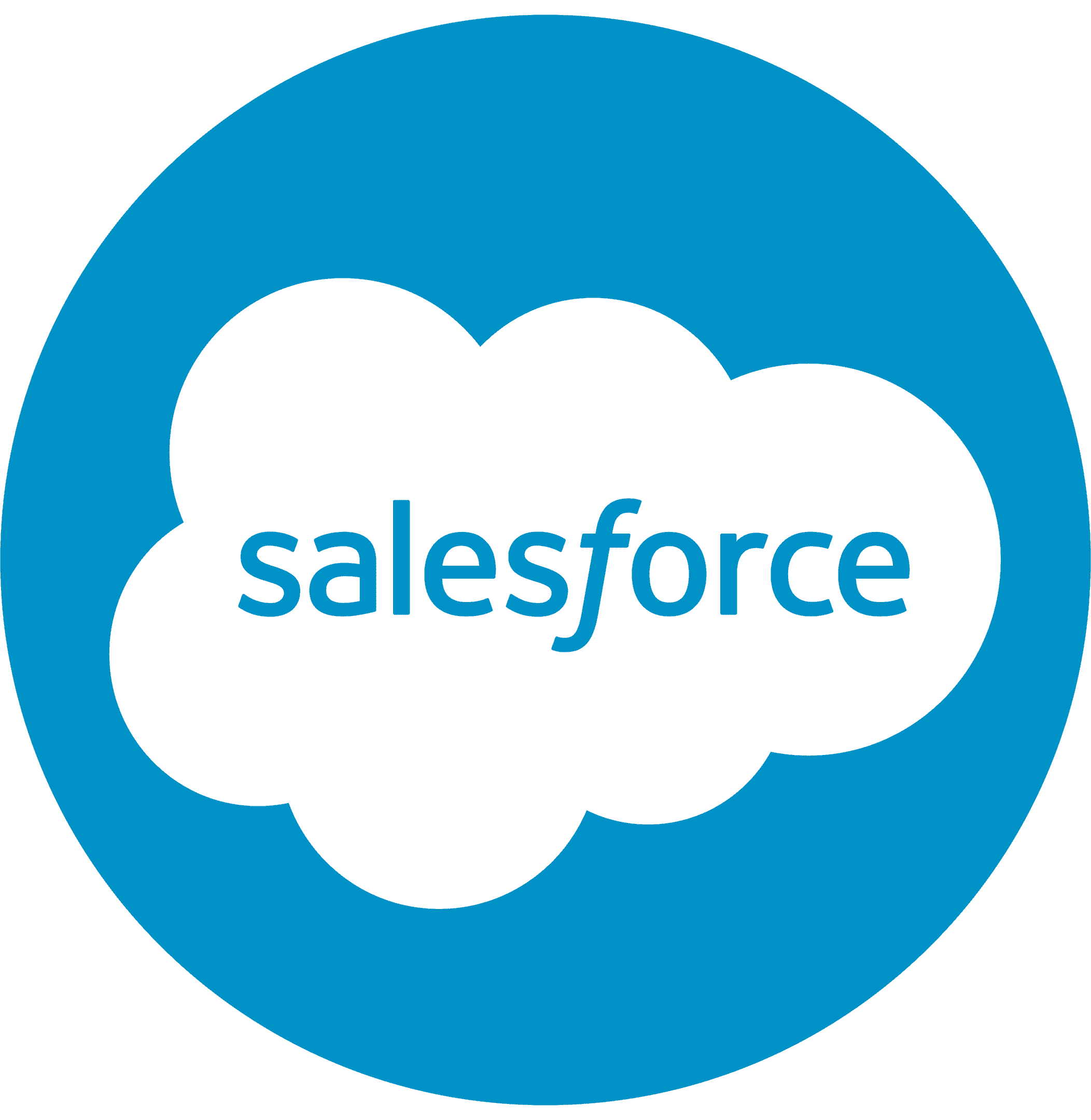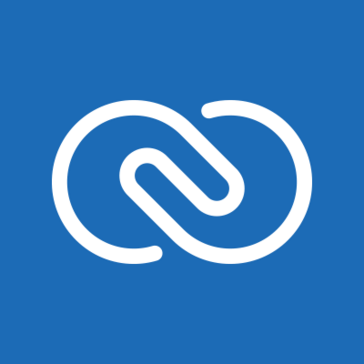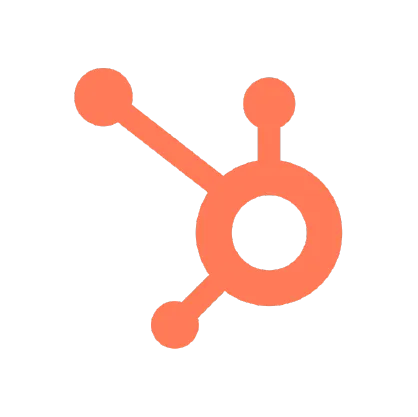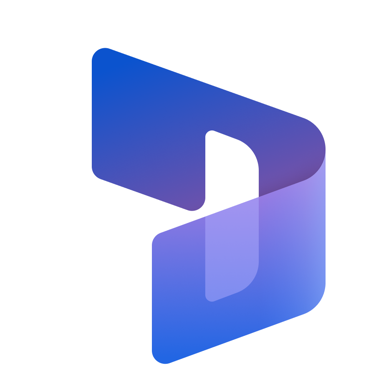Contractor Ads can improve conversions, increase your customer base, and boost revenue. With Spectrum Media, businesses can achieve these benefits and unlock their potential.


What is CRM Software?
CRM software tracks the sales pipeline, customer journeys, and customer base. It can automate repetitive tasks and streamline sales activities, identifying new sales opportunities and optimising the entire sales pipeline. Popular CRM software options include Less Annoying CRM, HubSpot, Salesforce, Zoho, and Freshsales. Each has unique features, with Less Annoying CRM being known for its affordability and ease of use. Other popular choices offer robust integrations and workflow automation tools.
CRM software, also known as customer relationship management software, is a tool businesses use to manage and analyse their customer interactions and data. It improves customer relationships, sales processes, and drives revenue growth. CRM software acts as a central hub for customer information, creating a detailed overview of each customer’s unique experience. It provides features to track customer interactions, purchase histories, preferences, and feedback. The software also manages sales processes efficiently with data insights, automated workflows, and notifications based on customer activities.



CRM software is important for digital marketing strategies. It helps businesses build and maintain relationships with customers. By using CRM software, businesses can increase sales, personalise marketing efforts, and nurture leads effectively. The software enables businesses to track customer behavior and interactions across multiple channels. This data can be used to create more targeted and personalised marketing campaigns. By taking a personalised marketing strategy, businesses can improve lead generation, engagement rates, and conversion rates.
CRM software can also help with lead nurturing. Automated workflows and targeted messaging can guide prospects through the sales funnel. This process increases the chances of converting leads into customers. CRM software can enhance customer profiling, providing businesses with detailed insights into customer behavior, preferences, and demographics. Advanced analytics is another important benefit of CRM software. CRM software allows businesses to track campaign performance on a granular level. This data can be used to optimise marketing efforts and improve the ROI. Finally, CRM software can help improve collaboration between sales and marketing teams. There are several types of CRM software available, including operational, analytical, and collaborative. CRM software is vital for businesses looking to succeed in the digital marketing landscape.
Contractor Advertising Vs Search Engine Optimisation: Which Is Right For Me?
At Spectrum Media, we specialise in both Google Ads and SEO (Search Engine Optimisation) to help businesses grow their online presence. When it comes to the construction industry, the choice between Contractor Advertising and SEO may seem daunting, but both have unique advantages that can be used to achieve your business goals. Let’s take a closer look at each:
Contractor Advertising using Google Ads allows your business to reach potential customers quickly. It involves targeted advertising, where you pay to have your ads appear in front of users who are actively searching for your services. Here are some key benefits:



Cloud-based Customer Relationship Management (CRM) solutions are changing the way businesses manage customer data and interactions. This software is built and maintained by the service provider on their servers and accessed over the internet through a web browser. One of the significant benefits is that it centralises customer data, giving businesses a 360º view. This means businesses can access data from different departments, improving customer experience. Cloud CRM solutions are lower in cost than on-premise CRM software, which requires significant upfront investment in infrastructure and IT personnel. Cloud CRM solutions are subscription-based and require no hardware infrastructure, making them more flexible and affordable for small businesses.
Additionally, cloud CRM solutions are highly scalable, allowing businesses to match their CRM needs to their budget and resources. Cloud-based CRM is easy to deploy and upgrade, with the service provider handling most of the updates in real-time without interrupting business operations. Cloud CRM solutions offer lower costs, scalability, flexibility, easy deployment and upgrades, and robust security features. In contrast, on-premise CRM solutions come with significant upfront costs, are less scalable, and have limited access to data. In conclusion, a cloud-based CRM solution is an excellent option for businesses looking for flexibility, scalability, lower costs, and robust performance by centralising customer data and providing a 360º view of all customer information.
On-Premise CRM Systems
On-Premise CRM Systems are installed and hosted on servers within a business’s premises. This type of CRM requires servers to be set up and maintained in the office, and software to be installed on local devices. Businesses have full control over their CRM software and data, including customisation and integration with other systems. However, upgrades, customisation, and system maintenance are the responsibility of the IT department. On-Premise CRM may be less flexible and scalable than cloud-based solutions and may require additional resources and expertise to handle increased workloads. Despite the challenges, On-Premise CRM may be beneficial for businesses that require full control and customisation of their CRM software.
Open Source CRM System
Open Source CRM Systems are different from other CRM software. They allow businesses to access the source code and customise the software to meet their needs. Customisation is critical in CRM implementation, as each business operates differently. SugarCRM and SuiteCRM are examples of popular Open Source CRM Systems. SugarCRM is a web-based platform that offers Cloud and On-Premise deployment options. SuiteCRM is a free and open-source alternative to SugarCRM.
However, implementing and customising Open Source CRM Systems can require technical expertise. Businesses must have some experience in software development to use these systems effectively. While some Open Source CRM Systems offer user-friendly interfaces, businesses may still need technical teams to customise and maintain the software. Open Source CRM Systems are a powerful tool for creating a highly tailored CRM experience, but businesses should understand their benefits and limitations before implementing them.




Schedule in a Call and Find Out How We Can Help You!
How Does Social Media Marketing Compare To A Google Ad Campaign?
When choosing a digital marketing strategy, understanding the differences between social media marketing and Google Ad campaigns is crucial. Both offer unique advantages and can drive different types of engagement. At Spectrum Media, we specialise in crafting custom strategies that utilise the strengths of both platforms.
Social Media Marketing:
Social media platforms like Facebook, Instagram, Twitter, and LinkedIn have become powerful tools for businesses to connect with their target audience. Here are some key benefits of social media marketing.
Engagement and Relationship Building: Social media platforms offer opportunities for direct engagement with customers, allowing you to build relationships, engage in conversations, and establish a loyal community.
Brand Awareness: Social media marketing can significantly increase your brand visibility and recognition, giving you an opportunity to showcase your brand personality and values.
Targeted Advertising: Most social media platforms offer robust advertising tools that allow you to target ads based on demographic data, interests, behaviors, and more.
Cost Effectiveness: Social media platforms often offer cost-effective advertising options with various budget ranges, making them accessible for businesses of all sizes.
Google Ad Campaigns:
Google Ads is a powerful tool for businesses looking to drive website traffic and conversions. Here are some key benefits of Google Ad campaigns:
Immediate Visibility: Google Ads provide instant visibility, placing your business in front of users who are actively searching for your services or products.
High Intent Audience: People searching on Google often have a higher intent to purchase compared to social media users, which can result in higher conversion rates.
Granular Targeting: Google Ads allows precise targeting based on keywords, location, device, and time of day, among others.
Performance Tracking: Google Ads provides comprehensive analytics for monitoring the performance of your campaigns and optimising them over time.
Converting Potential Customers With Contactor Keywords
As a contractor, it can be challenging to attract potential customers. One of the best ways for contractors to reach out to potential clients is through targeted contractor keywords in their marketing campaigns. Keywords are words or phrases that people use when searching for services online. By targeting specific keywords related to your business, you can potentially increase visibility and drive more qualified leads and customers to your website. Periscope Media’s in-house Google Ads team will research and target the keywords for your business that will lead to more conversions. Additionally, we will create and optimize contractor ads with compelling content for the highest ROI. Contact us to learn more about creating an effective contractor ad campaign.
The Unique Benefits of Contractor Ads with Google Ads & Spectrum Media
Contractor Ads, powered by Google Ads and expertly managed by Spectrum Media, offer a wealth of benefits for businesses in the construction industry seeking to elevate their online presence, boost customer engagement, and drive lead generation. The unique advantages of using Contractor Ads through this partnership include:
Targeted Advertising: Google Ads’ sophisticated targeting tools allow you to reach potential customers based on various parameters, including geographic location, demographics, and search behavior.
Maximized Visibility: Google Ads are displayed prominently in search results, giving your business improved visibility among potential customers.
Cost-Effective Marketing: With a pay-per-click (PPC) model, you only pay when someone clicks on your ad, providing cost-effective advertising that delivers measurable results.
Tracking and Analytics: Google Ads provides comprehensive analytics that allow you to track the performance of your ads, enabling you to optimize them for better results over time.
Flexibility and Control: Google Ads allows you to set your own budget, decide where your ads appear, and tweak your campaigns on-the-go based on performance data.
Professional Campaign Management: With Spectrum Media, your ad campaigns are managed by experienced digital marketing professionals who know how to maximize your ad spend for the best possible results.
Customization: Spectrum Media helps you create customized ad campaigns that reflect your unique business goals and branding.
Comprehensive Reporting: Spectrum Media provides detailed reporting on the performance of your ad campaigns, giving you insights to understand your return on investment and make informed decisions.
Ongoing Optimization: Spectrum Media continuously optimizes your ad campaigns based on performance data to ensure that they are always performing at their best.
Scalability: With Google Ads and Spectrum Media, you can easily scale your ad campaigns as your business grows, ensuring your advertising efforts grow with you.
By leveraging Contractor Ads with Google Ads and Spectrum Media, businesses can enjoy a range of unique benefits, making it an ideal choice for construction companies looking to bolster their online presence and reach more potential customers effectively and efficiently.
Google Ads for Contractors: Understanding the Basics and Targeting Capabilities
Google Ads is one of the most powerful and effective digital marketing tools available to contractors today. With its vast targeting capabilities, sophisticated optimization algorithms, and potential for personalization, Google Ads offers a great opportunity for contractors to get their message out to potential clients.
Understanding the Basics of Google Ads
Google Ads works by letting you create campaigns that are tailored towards specific goals. With these campaigns , you can define where your ads will appear (e.g., Google search results), what keywords they should target, and how much you are willing to spend on each click. You can also choose from a variety of ad formats such as text ads, display ads, video ads, and app ads.
Targeting Capabilities
Google Ads offers a range of targeting capabilities that allow you to tailor your campaigns to reach your desired audience. With geo-targeting, you can target specific geographic areas; with demographic targeting, you can target people based on their age, gender, or income level; and with interest targeting, you can target people based on their interests or browsing habits. You can also refine your targeting by adding additional parameters such as device type or language.
they should target, and how much you are willing to spend on each click. You can also choose from a variety of ad formats such as text ads, display ads, video ads, and app ads.
By leveraging the extensive targeting capabilities of Google Ads, contractors can create campaigns that are more targeted and effective, allowing them to reach potential customers in their area with greater accuracy. This in turn leads to higher conversion rates and a better return on investment overall.
Advanced Techniques: Optimising Your Search Queries and Utilising Video Ads
To reach potential customers, contractors must use targeted messages. Advanced techniques like optimising search queries and using video ads can help. Research and data analysis can help create effective ads that resonate with the audience. Relevant keywords can ensure ads appear at the top of SERPs. Video ads, including YouTube Shorts, can enhance contractor ads and drive conversions. YouTube Shorts is designed for short-form video content that captures the audience’s attention quickly. Targeted messages and visually appealing videos can stand out in the competitive market and drive engagement. Contractors can achieve their marketing goals with these advanced techniques.
Improving Conversion Rates Through Advanced Bidding Strategies and Conversion Tracking
To optimize conversion rates, set up conversion tracking on your website. This helps measure the success of digital advertising campaigns by tracking user actions, such as purchases or form fills. Analyze the effectiveness of marketing efforts and make data-driven adjustments. Automated bidding adjusts bids based on the likelihood of conversion, saving time and providing more accurate bids. Cost per acquisition bidding analyzes past conversions and adjusts bids accordingly. Identify negative keywords and exclude them, preventing costly clicks from irrelevant queries. Target specific audiences based on demographics, behavior, and interests for a hyper-focused campaign. Adjust bids based on device usage, such as bidding higher for mobile devices with higher conversion rates. Combining advanced bidding strategies with conversion tracking can improve campaign effectiveness and increase the likelihood of converting potential customers.
ages and visually appealing videos can stand out in the competitive market and drive engagement. Contractors can achieve their marketing goals with these advanced techniques.
Google Analytics: Your Contractor Ads Powerhouse Of Knowledge
Google Analytics is a robust tool that can provide invaluable insights into the performance of your Contractor Ads. It helps you understand how users are interacting with your ads and website, and allows you to make data-driven decisions to optimize your campaigns. Here’s how Google Analytics can power your Contractor Ads:
1. User Behavior: Google Analytics allows you to track and understand your website visitors’ behavior. You can see what pages they visit, how long they stay, what actions they take, and more. This data can be used to optimize your website and ad campaigns for better user experience and conversion rates.
2. Conversion Tracking: With Google Analytics, you can track the conversions that result from your Contractor Ads. This allows you to measure the effectiveness of your campaigns and see which ads are driving the most valuable actions.
3. Audience Segmentation: Google Analytics provides detailed demographic and interest data about your website visitors. This information can help you better understand your audience and tailor your Contractor Ads to target the right people with the right message.
4. Performance Reporting: Google Analytics offers comprehensive reporting features, allowing you to measure the performance of your Contractor Ads over time. You can track metrics like click-through rate (CTR), conversion rate, cost per conversion, and return on ad spend (ROAS), to name a few.
Website Traffic Analysis: By integrating Google Analytics with your Contractor Ads, you can monitor the source of your website traffic. This enables you to understand which channels and campaigns are driving the most traffic and contributing to your business goals.
Optimization: Based on the insights gained from Google Analytics, you can continuously optimize your Contractor Ads. This could involve tweaking your ad copy, adjusting your bidding strategy, or refining your target audience to improve your campaign performance and ROI.
In conclusion, Google Analytics is an essential tool for any business running Contractor Ads. It offers the insights needed to understand your audience, measure your ad performance, and make informed decisions for campaign optimization. At Periscope Media, we can help you set up and leverage Google Analytics to make your Contractor Ads more effective and profitable.
Flexible Pricing, Customised Packages and Ad Formats for Your Specific Needs
Spectrum Media provides Contractor Ads for construction businesses. Their service offers flexible pricing and customised packages to meet individual needs and budgets. These Contractor Ads have a range of ad formats, including display and shopping, to target potential customers in different ways. Periscope Media works with clients to determine an effective advertising strategy and budget based on factors such as cost per click for their niche. Businesses can choose from a variety of pricing and package options that are tailored to their unique needs. Overall, Periscope Media’s Contractor Ads offer tailored solutions for construction businesses.
Budget Management Techniques for Contractor Ads
When launching a contractor ad campaign, budget management is crucial for achieving success. Running ads without a realistic budget can lead to overspending, inaccurate performance tracking, and ultimately lower return on investment (ROI). Here are some key factors to consider when planning a budget:
1. Bidding strategies: Different bidding strategies can influence your ads’ placement and the frequency at which they appear, ultimately impacting your budget. Setting a maximum cost per click (CPC) or cost per impression (CPM) can help control costs and prioritize high-converting keywords.
2. Placement: Ad placement varies depending on the ad format and targeting options. For example, targeting a specific geographic location or demographic can increase ad visibility, but it may also come at a higher cost.
3. Audience targeting: Narrowing down your target audience can help save money by avoiding irrelevant clicks and impressions. Consider factors such as age, interests, and behavior when defining your audience.
4. Ad formats: Different ad formats incur different costs, and their effectiveness can vary depending on your audience and marketing goals. Display ads can be more cost-effective for brand awareness, while search ads can generate more leads and conversions.
Avoiding Overspending
Sticking to your budget is crucial for successful budget management. Overspending can lead to missed opportunities and may cause other areas of your ad campaign to suffer. Tracking performance and tweaking your campaign based on insights can help optimize your budget and maximize ROI.
1. Adjusting bids: Regularly adjusting your bidding strategy can help optimize your budget and improve ad placement for high-performing keywords.
2. Negative keywords: Adding negative keywords can help refine your ad targeting, reducing costs associated with irrelevant searches.
3. Ad scheduling: Running ads only during certain times of day or on specific days can save money by reducing ad impressions during low-converting periods..
4. Ad formats: Different ad formats incur different costs, and their effectiveness can vary depending on your audience and marketing goals. Display ads can be more cost-effective for brand awareness, while search ads can generate more leads and conversions.
Proper budget management is key to achieving success with contractor ads. By setting a realistic budget and considering factors such as bidding strategies, placement, audience targeting, and ad formats, businesses can effectively reach their desired audience while minimizing costs. With tracking and optimization tactics in place, businesses can ensure maximum ROI for their contractor ad campaigns. Periscope Media’s expertise with Contractor Ads will ensure that you get the most out of your budget.
CRM software, short for Customer Relationship Management software, is a solution that aids businesses in managing customer interactions, tracking sales leads, and simplifying processes. It benefits your business by centralising contact info and customer data, refining customer relationships, and improving sales management and marketing efficiency.
Can you help my business implement and customise CRM software?
Absolutely. As a digital marketing company specialising in Customer Relationship Management solutions, we assist businesses in implementing and customising CRM software to meet their unique needs. Our team will understand your requirements, select the right CRM platform with key features that align with your business processes for seamless integration.
We work with HubSpot, and recommend it as a highly suitable platform, ensuring you have a robust CRM system with additional features that meet your specific needs.
CRM software can enhance your sales and marketing efforts by providing a centralized database of customer information. It serves as a powerful marketing automation tool, enabling better lead management, automating email campaigns, and tracking sales activities. This reduces manual tasks, improves communication, and empowers your teams with actionable insights, driving more conversions and revenue.
Definitely. CRM software is designed to integrate with other business systems like email marketing platforms, customer support software, and e-commerce platforms. This integration allows for smooth data flow, automation, and a comprehensive view of customer interactions across various touchpoints.
Yes, CRM software can significantly improve customer service and support. It equips your customer service teams with instant access to customer history and preferences, enabling them to track support tickets and manage inquiries efficiently. With this, you can provide personalized support and enhance overall customer satisfaction.
Indeed. Whether you’re a small startup or a large enterprise, a CRM system can benefit your business by organizing customer data, improving collaboration, and optimizing sales and marketing efforts. Its basic features to advanced capabilities make it versatile for all business sizes.
Yes, modern CRM software offers remote access and mobile capabilities. This allows for on-the-go access and updates to customer data. This flexibility ensures that your sales and support teams stay connected and productive, even when they are away from the office.
Getting started with our CRM software services is straightforward. Reach out to us for a consultation. We’ll assess your business needs, recommend a CRM platform suitable for you, and develop a customized plan to implement and optimize a CRM solution. The goal is to drive growth and improve customer relationships for your business, leveraging sales automation and task management capabilities of CRM.
Spectrum Media offers CRM software consulting to businesses of all sizes. We provide expert services to help companies choose the most suitable CRM software. Our team considers factors like business size, budget, and specific requirements. We then tailor our recommendations to suit each department’s needs. Spectrum Media’s CRM software strategy session includes task and deal management, workflow automation, sales forecasting, and third-party integrations. With Spectrum Media’s expert advice, companies can be assured of a seamless customer relationship management experience. Contact Spectrum Media today for your no-obligation CRM discussion to automate your business tasks.

Digital Strategist